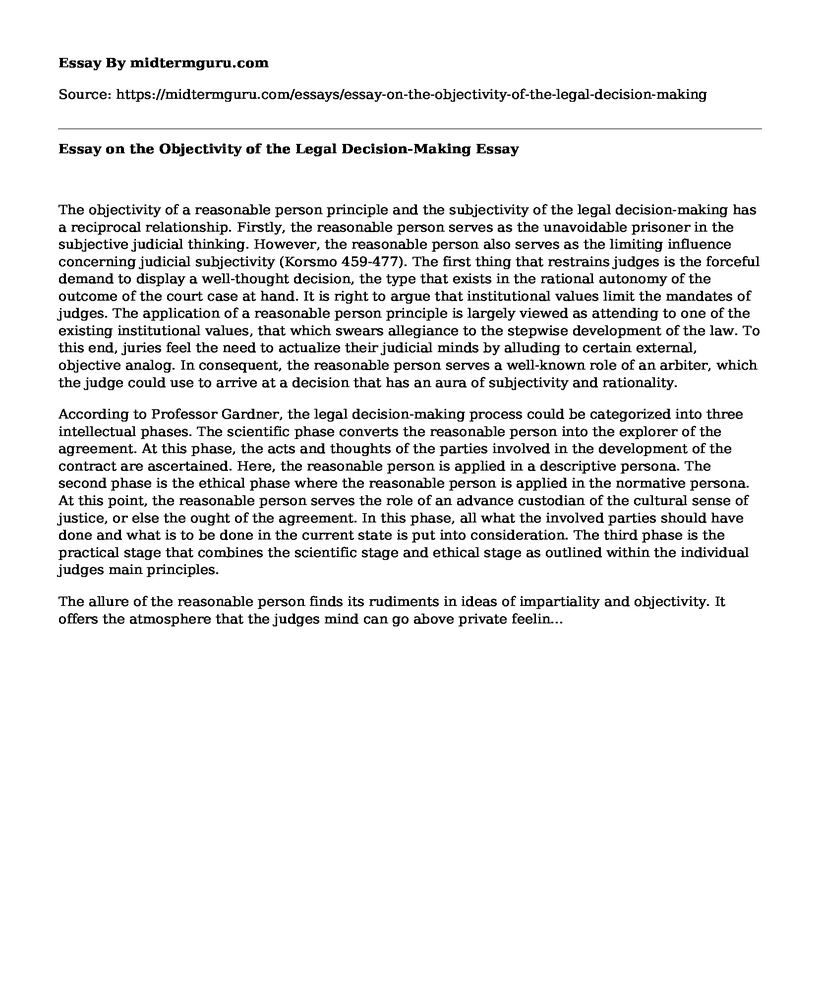The objectivity of a reasonable person principle and the subjectivity of the legal decision-making has a reciprocal relationship. Firstly, the reasonable person serves as the unavoidable prisoner in the subjective judicial thinking. However, the reasonable person also serves as the limiting influence concerning judicial subjectivity (Korsmo 459-477). The first thing that restrains judges is the forceful demand to display a well-thought decision, the type that exists in the rational autonomy of the outcome of the court case at hand. It is right to argue that institutional values limit the mandates of judges. The application of a reasonable person principle is largely viewed as attending to one of the existing institutional values, that which swears allegiance to the stepwise development of the law. To this end, juries feel the need to actualize their judicial minds by alluding to certain external, objective analog. In consequent, the reasonable person serves a well-known role of an arbiter, which the judge could use to arrive at a decision that has an aura of subjectivity and rationality.
According to Professor Gardner, the legal decision-making process could be categorized into three intellectual phases. The scientific phase converts the reasonable person into the explorer of the agreement. At this phase, the acts and thoughts of the parties involved in the development of the contract are ascertained. Here, the reasonable person is applied in a descriptive persona. The second phase is the ethical phase where the reasonable person is applied in the normative persona. At this point, the reasonable person serves the role of an advance custodian of the cultural sense of justice, or else the ought of the agreement. In this phase, all what the involved parties should have done and what is to be done in the current state is put into consideration. The third phase is the practical stage that combines the scientific stage and ethical stage as outlined within the individual judges main principles.
The allure of the reasonable person finds its rudiments in ideas of impartiality and objectivity. It offers the atmosphere that the judges mind can go above private feelin...
Cite this page
Essay on the Objectivity of the Legal Decision-Making . (2021, Jun 17). Retrieved from https://midtermguru.com/essays/essay-on-the-objectivity-of-the-legal-decision-making
If you are the original author of this essay and no longer wish to have it published on the midtermguru.com website, please click below to request its removal:
- Essay on Death Penalty in the USA
- Discussion Post: How Gun Laws Have Changed Since Sandy Hook
- What Causes Structural Racism in the Justice System? - Paper Example
- Essay Sample on Free Movements of Persons
- Human Trafficking: Sex Trafficking - Essay Sample
- Midtown Community Court: Addressing Social Issues in NYC - Research Paper
- Factory Workers in Industrial Revolution: Poor Wages, No Rights - Essay Sample







